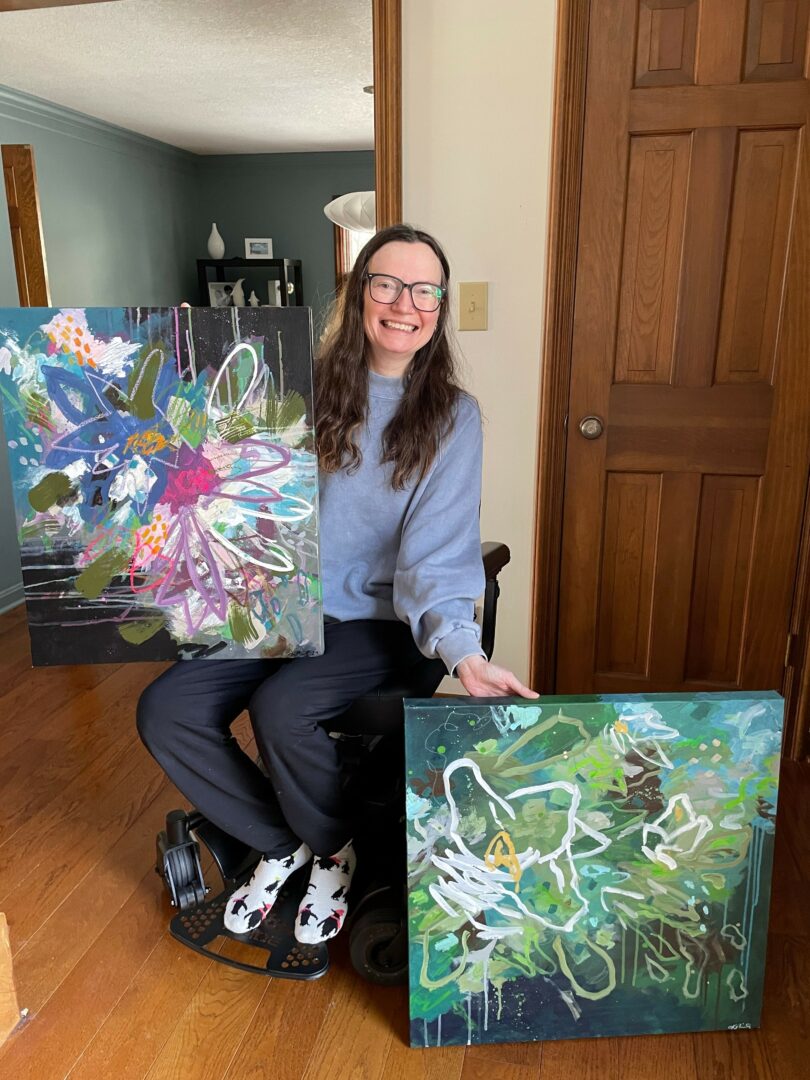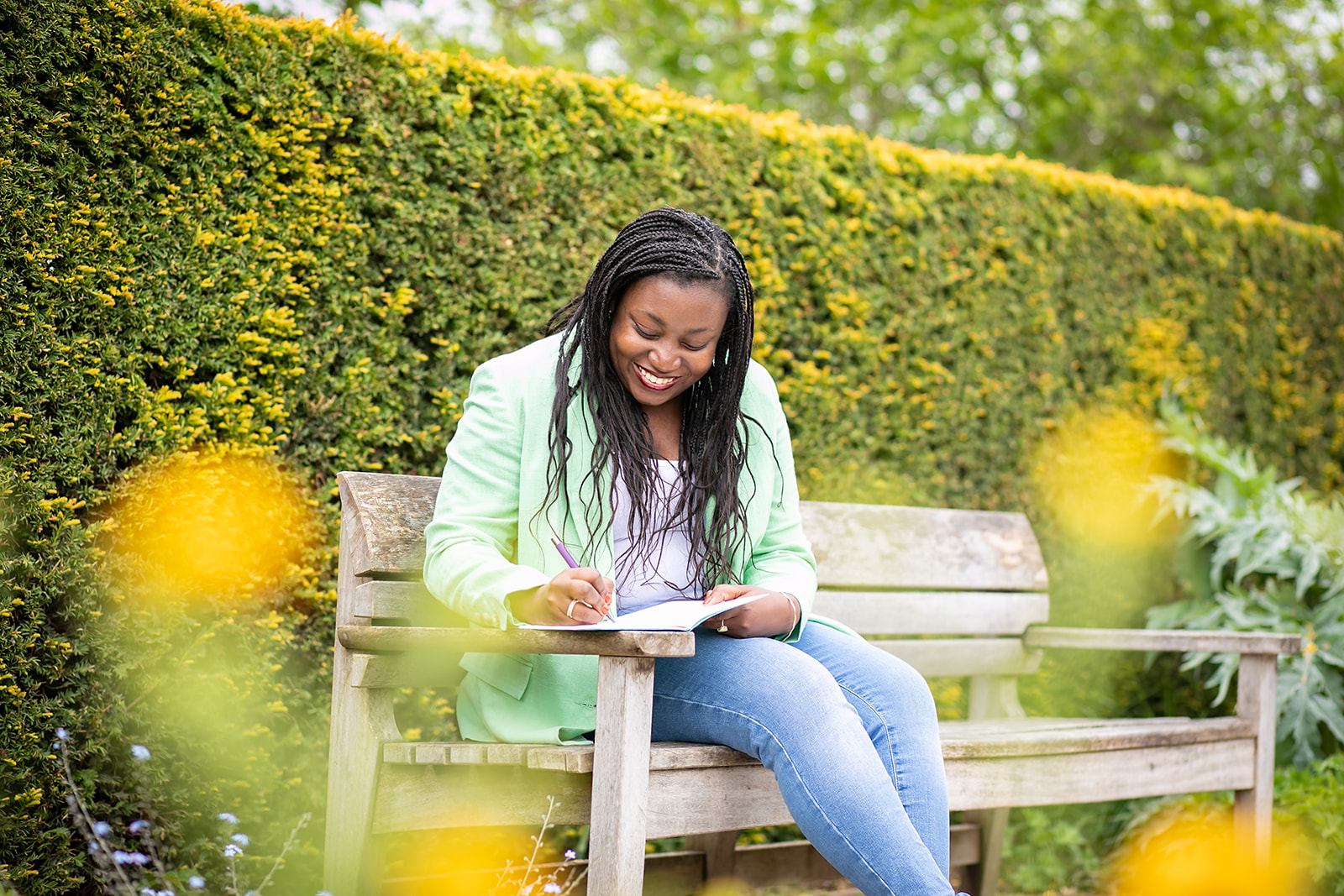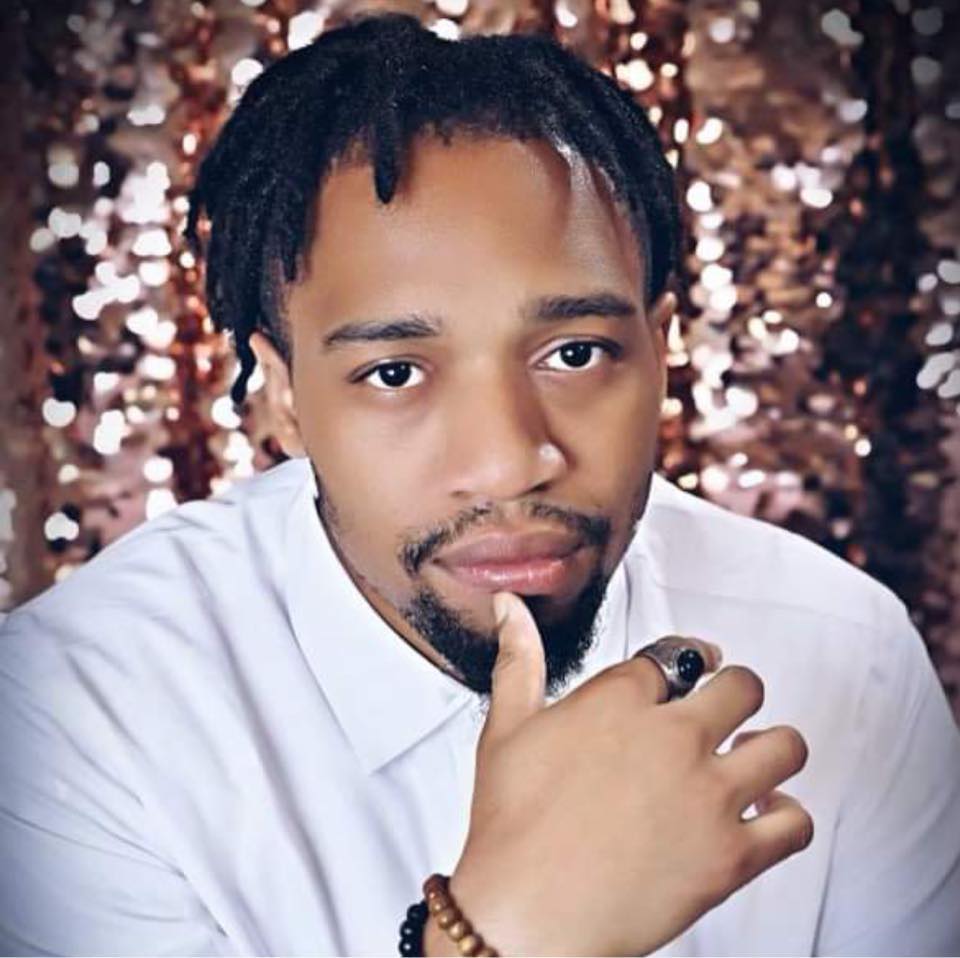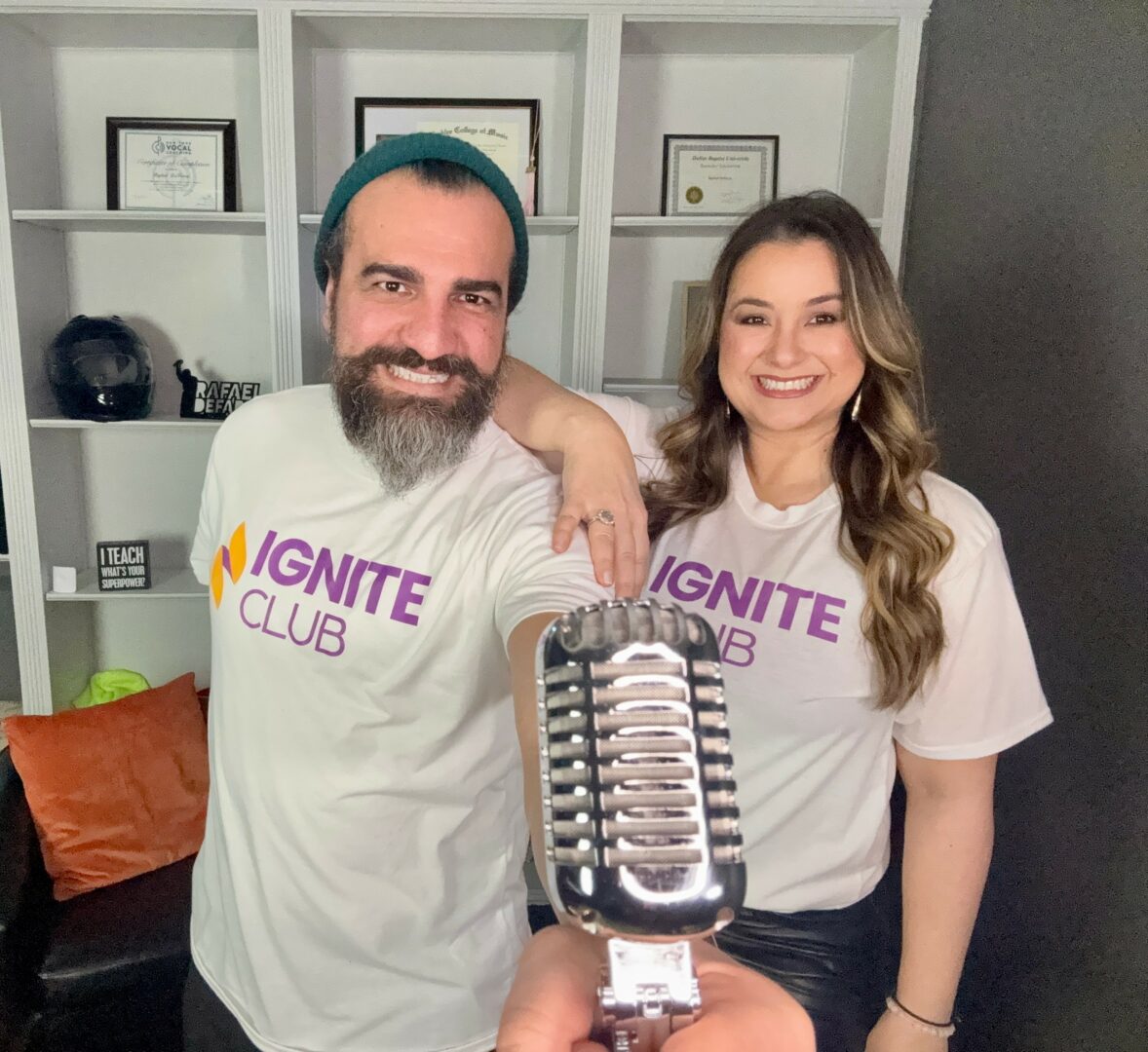We caught up with the brilliant and insightful Kelly Meiners a few weeks ago and have shared our conversation below.
Kelly, we’re thrilled to have you sharing your thoughts and lessons with our community. So, for folks who are at a stage in their life or career where they are trying to be more resilient, can you share where you get your resilience from?
My resilience is a result of learning from life’s challenges. Everyone faces difficulties—I don’t believe I’m unique in that aspect—but I’ve developed resilience through reflection and by seeking positive lessons and wisdom from my experiences. I’m also fortunate to have always been surrounded by love- from my childhood family, to close friends, my husband and 3 kids, I find strength through them.
When I was 19, my Dad tragically drowned when a storm overtook his boat while fishing in Canada. Losing a parent at such a young age was incredibly difficult. Looking back, every single day felt heavy—grief weighed on my chest. I coped by running long distances, reflecting deeply during each mile. In fact, I was running so much that I completed my first marathon about a year after his passing, simply because 20+ mile runs had become my norm.
More challenges followed, including losing my Mom to breast cancer and my own personal battle after being diagnosed with stage 0, DCIS breast cancer and the 8 surgeries that followed.
During this time, I struggled to make sense of why both of my parents had passed at such young ages. Almost everyone I knew still had both parents. Eventually, I realized that unfortunate circumstances happen to everyone—there’s no rhyme or reason—but the most important thing is to keep moving forward. I also learned not to “trip on something behind me.” Reflection is important for growth, but dwelling on the past isn’t productive. I saw how easily negative thoughts could pull me under, so I made a conscious decision to focus on the positive: finding joy in my husband and kids, the simplicity of nature, and, of course, the release of long runs.
Even through these challenges, I remained grateful. Every day, I reminded myself of the immense positivity in my life. I continued pushing myself to grow: I earned my PhD in 2.5 years, transitioned from a career as a practicing physical therapist to academia (eventually becoming a tenured associate professor and chair of the Physical Therapy and Exercise Science departments), volunteered on multiple charity boards—including one that raised funds for cancer survivors—and continued to exercise and enjoy life with my three active kids.
Little did I know that in the fall of 2021, I would face my biggest hurdle yet. After a mild case of COVID-19, I suddenly became disabled. I spent the rest of 2021 and all of 2022 completely bedridden in a dark, silent room due to brain damage caused by the virus. I suffered from constant seizures, hallucinations, relentless migraines, and the inability to speak, walk, or even use utensils to feed myself. I was unable to sleep but also unable to do anything besides lie in bed with an eye mask, left alone with only my thoughts and memories. During the first year being bedridden, I often felt like I was walking a narrow path at the edge of a cliff—one wrong step, and I’d fall into a dark place. But I kept looking forward. No matter how difficult a situation is, it will eventually pass.
Despite the overwhelming physical suffering, I still found gratitude in small things: my soft pajamas, my warm bed, my loving husband, who became my full-time caregiver. My recovery has been minimal and painfully slow. By 2023, I had improved enough to look out a window, follow simple TV shows, and have brief conversations with my kids or friends who visited.
Now, 3.5 years later, I am still homebound, moving between my bed and the sofa in a power wheelchair. My days of running are long gone, but I’ve found a new way to cope: abstract painting. Because of my brain injury, I struggle to process and communicate emotions, so I pick up a brush and express myself through color and movement.
Though resilience gained from past hardship has given me the strength to endure my current situation, it still isn’t easy. Even after 3.5 years of significant physical and cognitive disabilities, I still struggle with acceptance. I stubbornly hold onto hope for a cure for Long COVID and a reversal of the multi organ damage and heart failure I have endured as a result of this virus. The rate of suicide among severe cases like mine is shockingly high, and I refuse to be a statistic. Instead, I spend the majority of my day in meditation, reflecting on the past and reminding myself that I have no control over the future—only my perceptions and how I respond to it.
Based on my past experiences and the understanding I gained early on that life isn’t fair and hardships happen to everyone, I’ve recently found wisdom in both Stoic and Buddhist teachings. Beyond my physical disabilities, the loss of my former life has been overwhelming. Going from being extremely healthy, active, and social to experiencing constant seizures, migraines, extreme light and sound sensitivities, and severe energy limitations has left me homebound—often completely bedridden. I have lost almost every aspect of my previous self.
Still unable to read, follow basic TV shows, listen to music, hold long conversations with friends or family, or even bathe and prepare meals for myself, I struggle daily with the reality of my limitations. Some Buddhist teachings have been particularly helpful, especially those that describe suffering as the refusal to accept change. Learning to accept the drastic shifts in my life and my dependence on others for even my most basic needs has been a profound challenge.
Yet, despite it all, I remain deeply grateful for the love and support of my family and friends. Acceptance will be an ongoing process, but even in the face of uncertainty and loss, I choose gratitude. I am happy and satisfied with my life—right here, right now. The present moment is all we truly have.
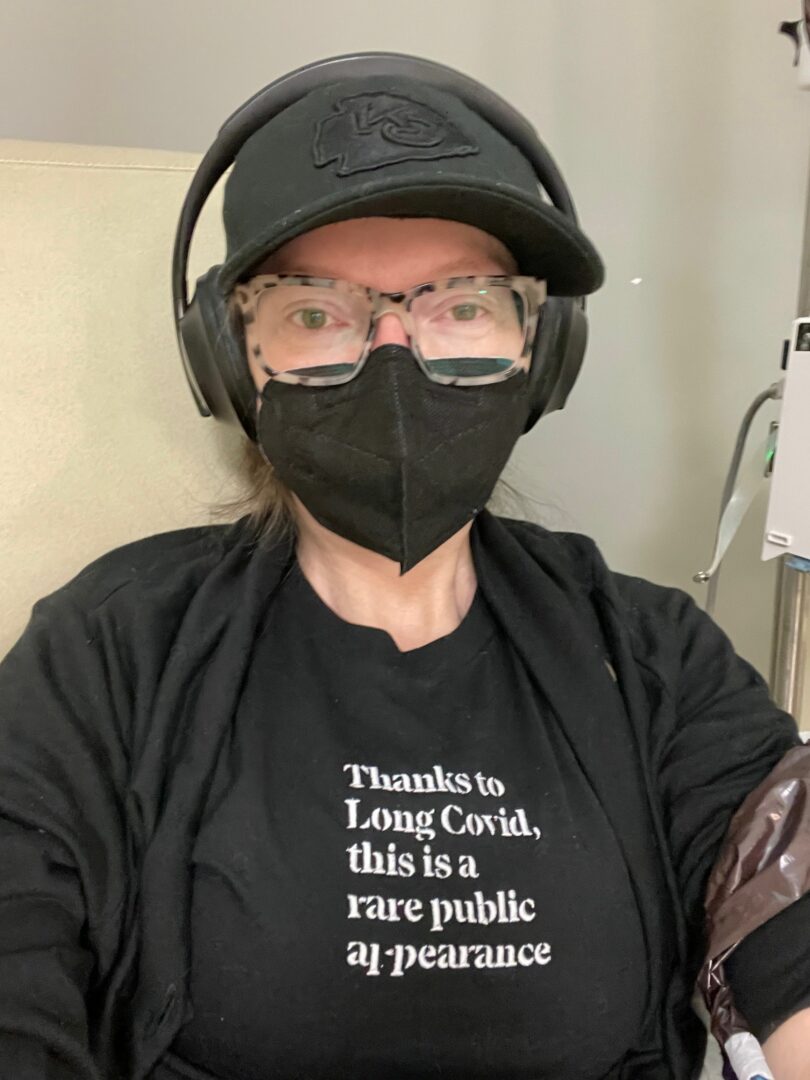
Great, so let’s take a few minutes and cover your story. What should folks know about you and what you do?
My artwork serves as a means of communication, allowing me to express emotions that would otherwise remain inaccessible due to my brain injury. Before sustaining brain and multi-organ damage from COVID-19, I was a busy mother, physical therapist, college professor, and academic department chair. Overnight, the virus devastated my body so severely that, three years later, I am still homebound, often bedridden, and unable to care for myself.
The loss of identity, combined with new physical and cognitive disabilities, has been overwhelming. My abstract painting helps me process and accept my new place in the world. When I paint, I momentarily forget that I am disabled and instead experience a profound sense of peace. An empty canvas represents infinite possibilities and opportunities—not the limitations of my daily life.
I create in short bursts, limiting myself to seven minutes of focused creative energy while lying on the floor, using tools to minimize physical tremors. My preferred mediums include acrylic, watercolor, oil pastels, and graphite on canvas or paper. I consider myself an intuitive painter, depicting harmonious chaos as a reflection of my emotions and physical challenges. Through my work, I strive to convey a message of hope and joy in a world filled with uncertainty.
Being homebound, my greatest joy comes when my art evokes thoughts and emotions in others. Isolated from modern society, my paintings serve as a means of sharing my thoughts and feelings, allowing me to connect with viewers. As someone among the most severely impacted by a new disabling virus affecting millions in the U.S., I believe it is crucial that my story is heard. Every day, thousands more people join the growing population of those suffering from Long COVID. As a community, we face discrimination at a level worse than that seen during the early days of the AIDS crisis.
Through my art, I hope to raise awareness of Long COVID and share my experiences as they are reflected in my work. I began painting after becoming disabled, and art has saved my life. I want to show others that even in what seems like a hopeless situation, it is possible to find new joy and light.
I currently have pieces on display at 3 galleries in Kansas City and 1 gallery in Chicago. I recently received a National Endowment of the Arts Visual Arts Award and Grant.
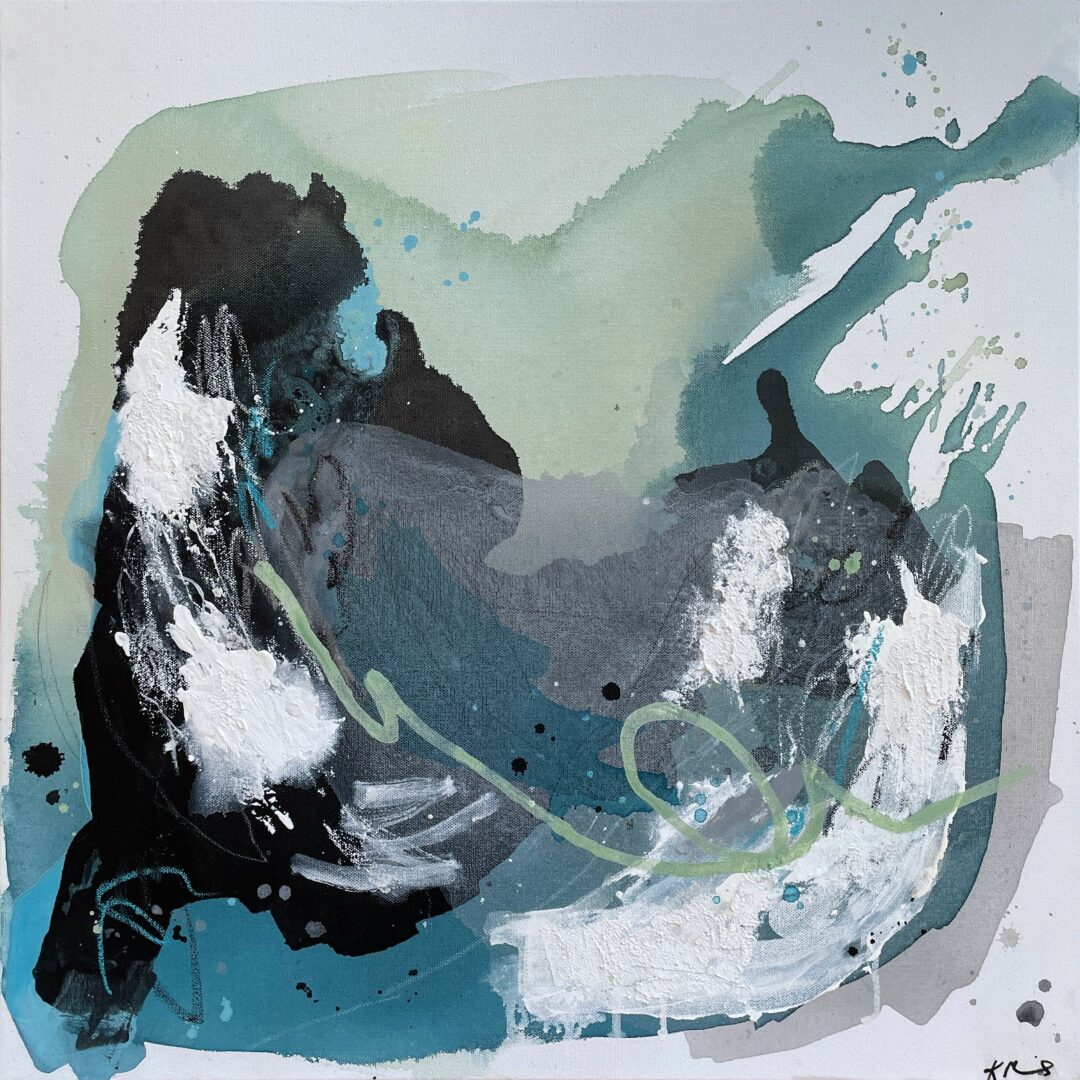
If you had to pick three qualities that are most important to develop, which three would you say matter most?
Three Qualities That Have Helped Me in Life
Adaptability: Control in life is an illusion. There are very few things we truly have control over—mainly our perceptions and how we choose to react, both in thought and action, to any given situation. Other factors, such as the opinions of others, our personal health, and our future plans, are ultimately beyond our control. While we may influence certain aspects of life, we cannot dictate their outcomes. Dwelling on things outside our control only wastes precious time and energy. I’ve learned that the best approach is to focus solely on what I can control: my perceptions and reactions.
Reflection: My Jesuit education taught me that every experience holds a lesson, yet these lessons often go unlearned because we rush from one moment to the next. Taking the time to reflect on each experience allows for deeper understanding, leading to wisdom and a richer life.
Gratitude: Even before I became ill, I naturally reflected daily on how fortunate I was. I recognized the gift of being surrounded by loving, supportive people, living in a safe environment, and appreciating life’s finer details—the beauty of a sunset, the stars, the scent of fresh grass, or the taste of a fine wine. Over time, this practice of gratitude became ingrained in me. Now, despite being homebound and disabled, I still feel incredibly lucky to be alive.
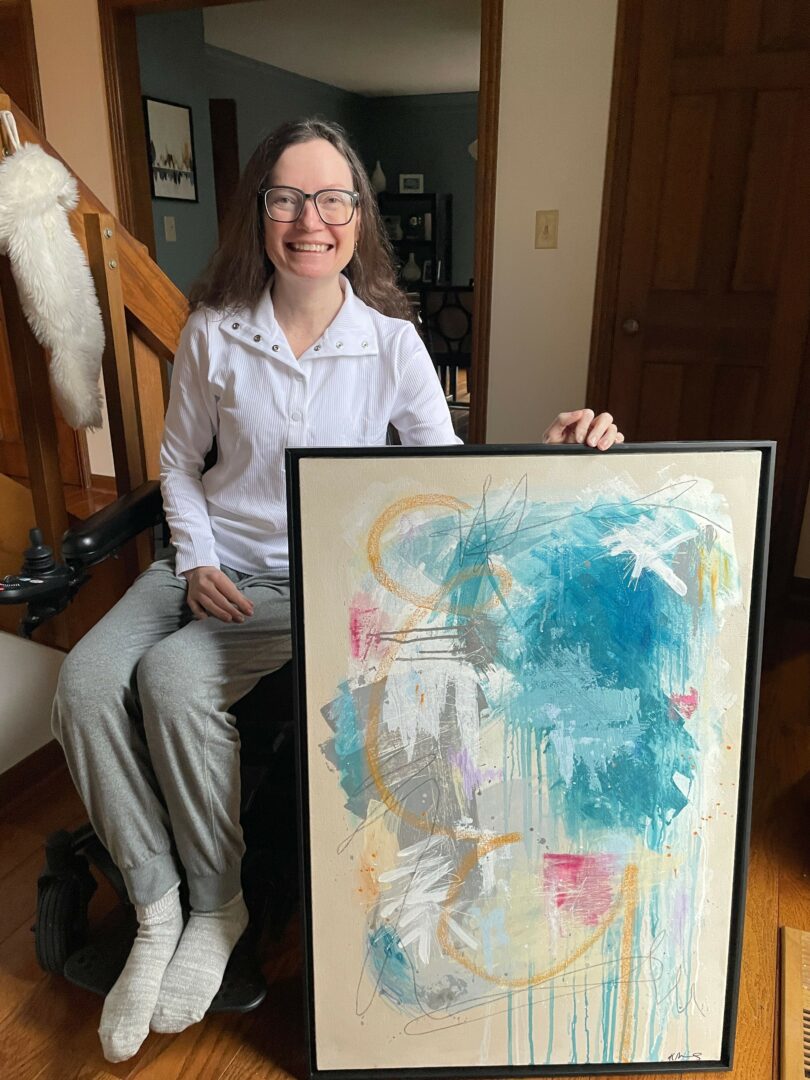
All the wisdom you’ve shared today is sincerely appreciated. Before we go, can you tell us about the main challenge you are currently facing?
One of the greatest obstacles I’ve faced is gaslighting by both the medical community and society. Over 24 million Americans have Long COVID, yet research and resources continue to be cut. Shortly after my COVID infection in 2021, I went to a hospital in Kansas City, where a physician dismissed my symptoms as psychosomatic simply because he had never seen COVID cause such severe issues.
After a year of excruciating pain, constant seizures, and being bedridden in the dark 24/7, I was finally evaluated at the Mayo Clinic. There, I was diagnosed with Long COVID and over 10 other conditions, including chronic seizures, migraines, an undiagnosed heart attack (which I was actively suffering from during my earlier hospital visit), and significant damage to my brain, pancreas, and lungs. I was also diagnosed with POTS, ME/CFS, and immunosuppression, among other disabling conditions. Doctors told me I was in the most severe 1-2% of Long COVID cases they had seen.
Though my case is extreme, this kind of medical gaslighting is common among Long COVID patients. Many people don’t even realize their new health issues are tied to a past COVID infection, meaning the true number affected is likely far higher than 24 million.
Meanwhile, the world has moved on. The U.S. recently discontinued Long COVID research, dismantled the HHS office coordinating resources, and downplayed the long-term impacts of COVID. Media coverage is nearly nonexistent, and healthcare professionals make little effort to understand the condition—despite it affecting more people than most major diseases and causing a lower quality of life than end-stage cancer or renal failure.
After 3.5 years of searching, I’ve finally found a supportive medical team—though even the most honest doctors admit they have no idea how to treat me or what my prognosis might be. But I’ll take honesty over gaslighting any day. Long COVID patients need help: research funding, better education for healthcare providers, and recognition from society. We are discriminated against, and those of us suffering never imagined we would be in this position. Most of us, like me, were once healthy and athletic. This disease can affect anyone.
I use what limited energy I have to advocate for others suffering with Long COVID. I’m a committee member of Long COVID Physio, an international group of physical therapists that provides education to both patients and healthcare providers. I’m also a member of the Rehabilitative Science Research Network for COVID.
I’ve been interviewed by multiple media outlets about my personal experience and have served as an invited speaker at several state and international conferences, though my participation has been limited to prerecorded videos due to my physical and cognitive limitations. I regularly communicate with state representatives and stay as vocal as possible on social media platforms like X.
One of the most meaningful ways I advocate is by sharing my story and raising awareness through my art. There were years when I didn’t have the ability to advocate for myself, so now I feel a deep responsibility to use what energy I do have to speak up for those who can’t.
Contact Info:
- Website: https://www.kellymeiners.art
- Instagram: @kellymeiners.art
- Twitter: @KellyMMeiners
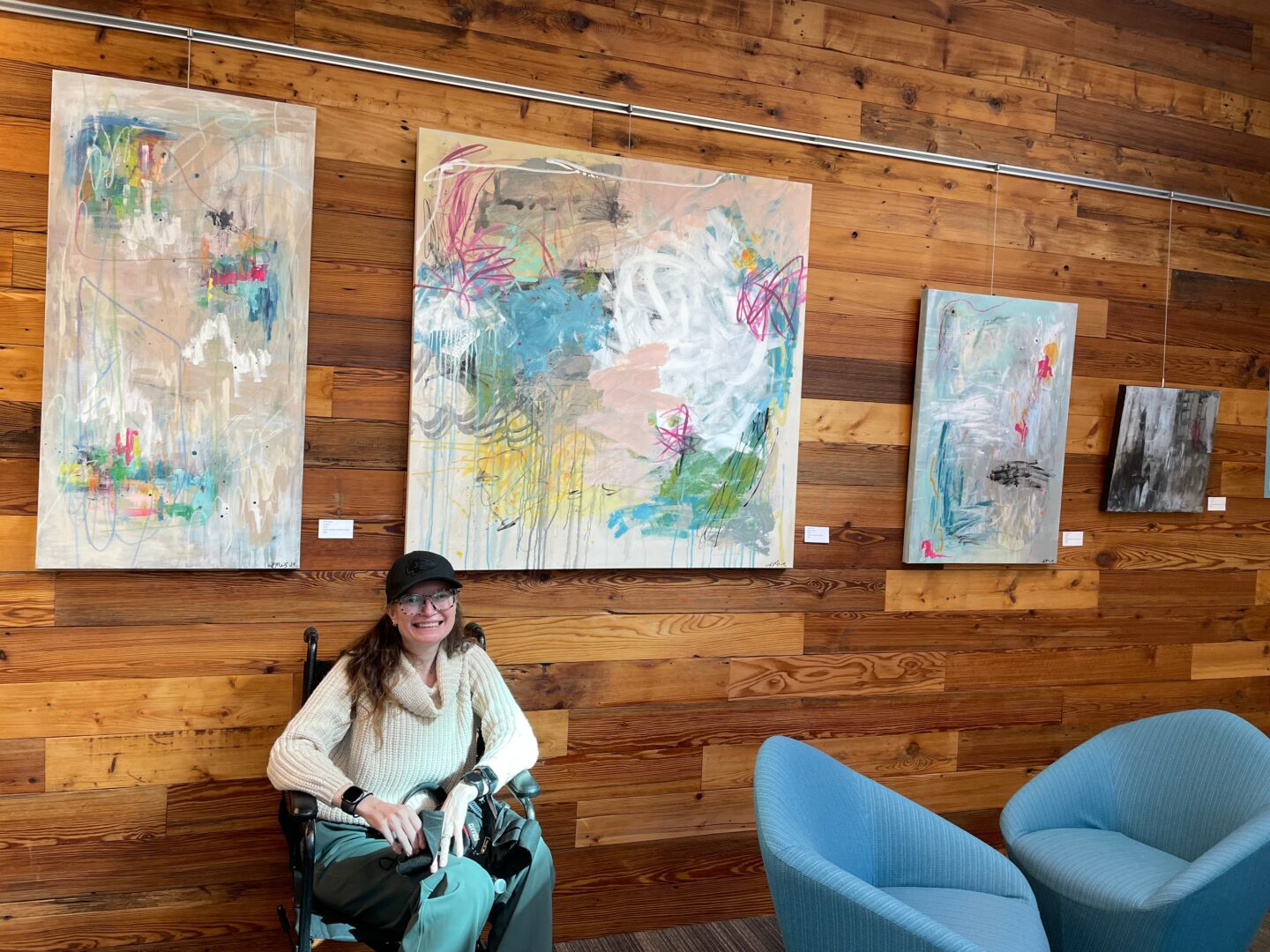
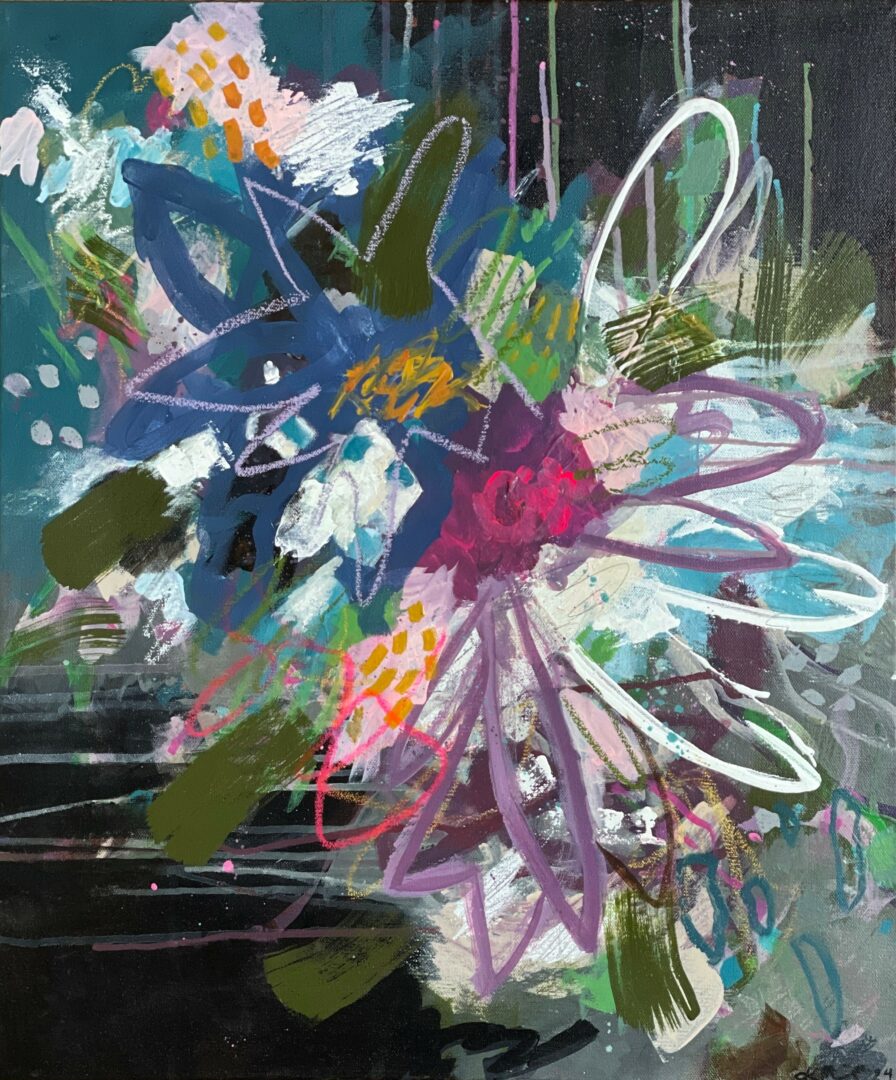
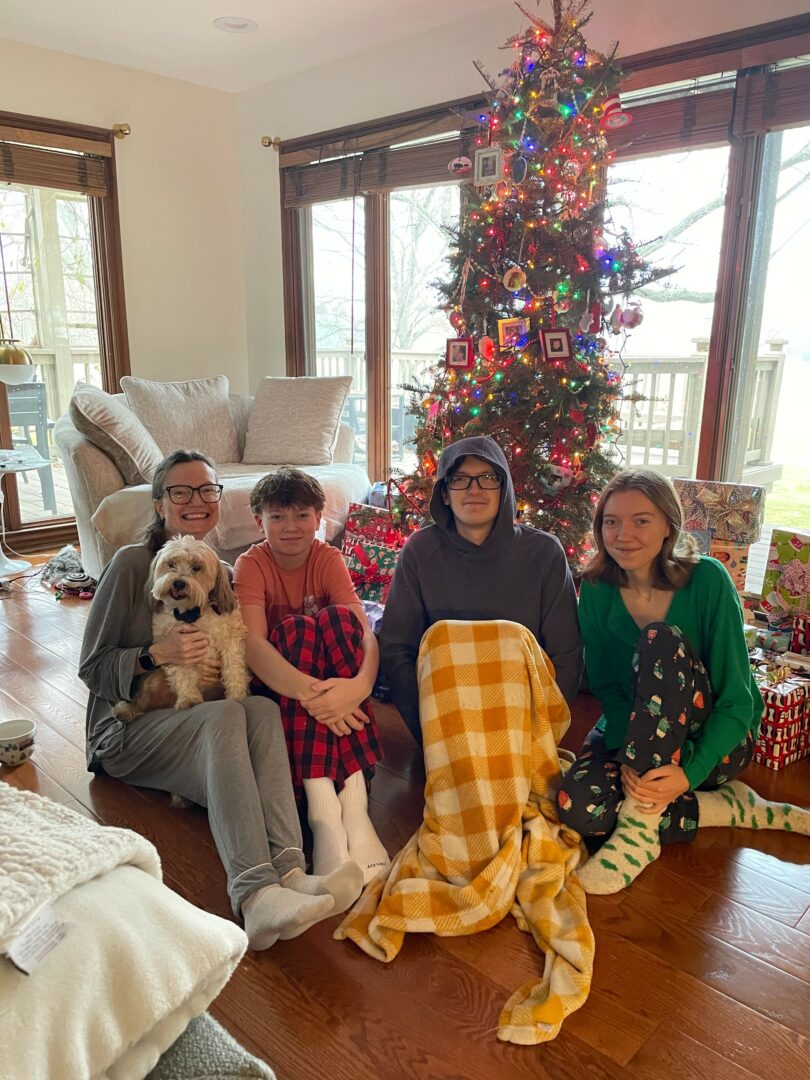
so if you or someone you know deserves recognition please let us know here.

